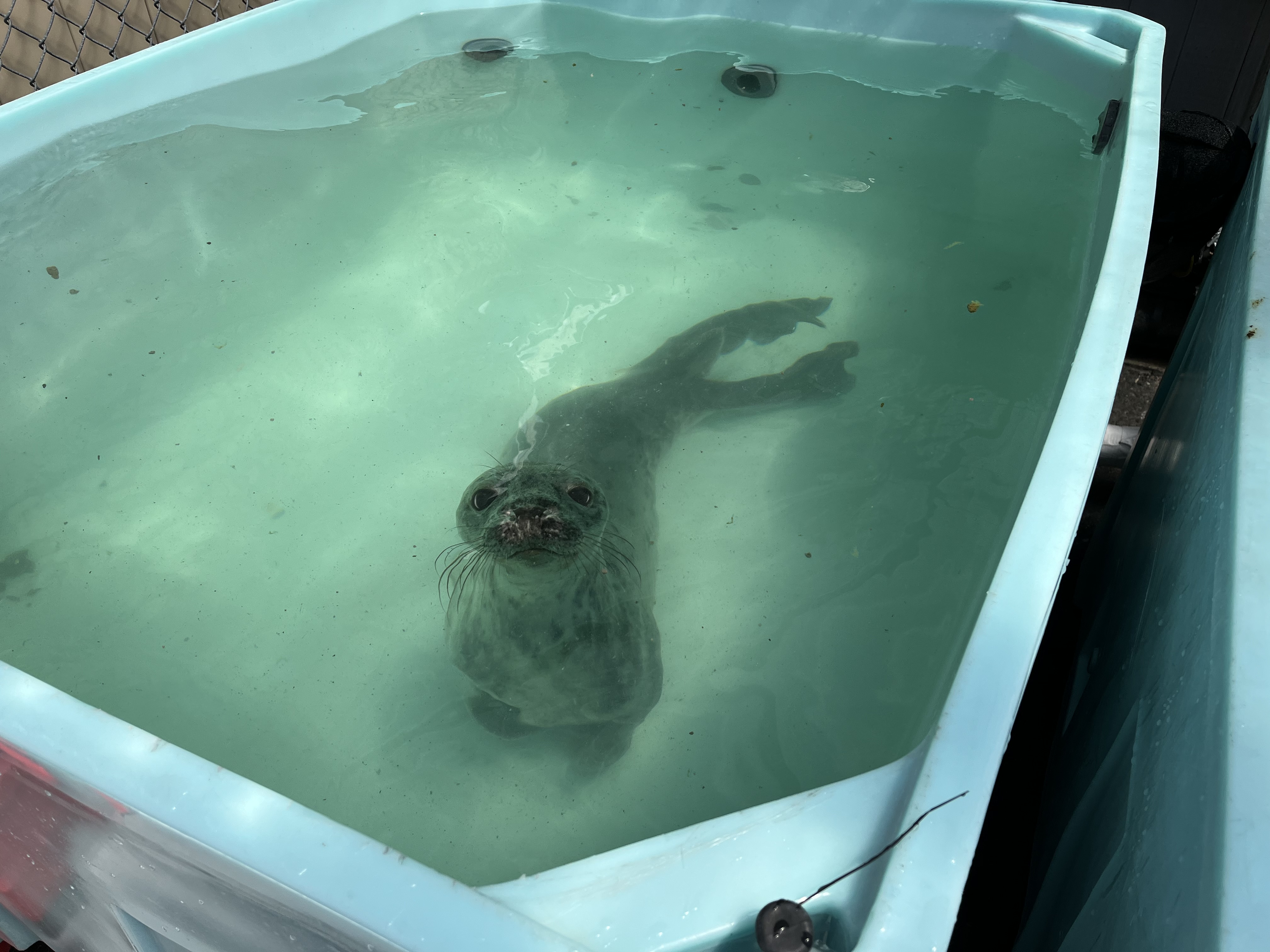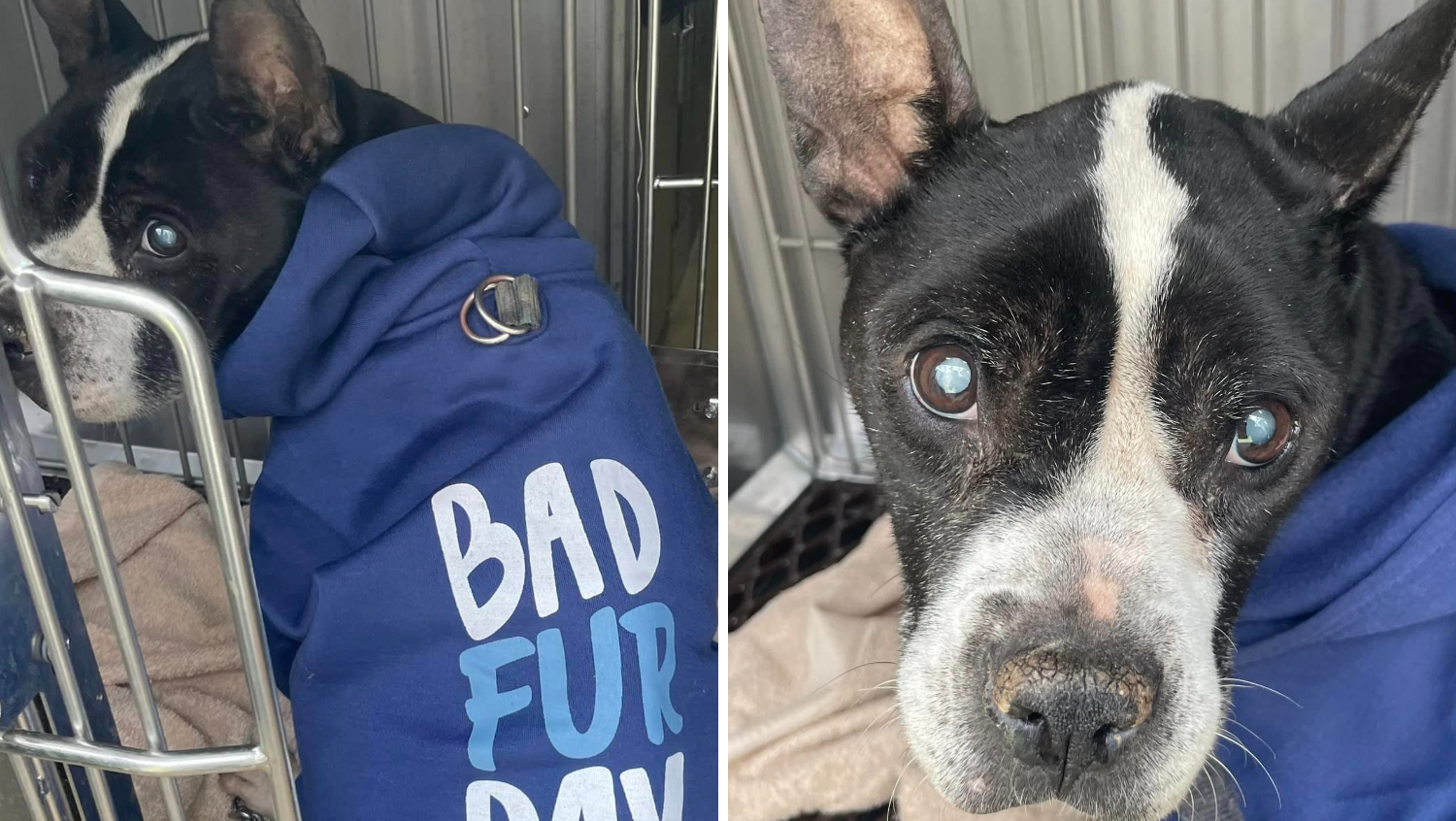Six dogs are now certified service dogs after completing an extensive ECAD program in Connecticut.
Celebrations for the class of 2021: last week there was a special ceremony for the recent graduates.
Their training is in helping others, and they’re doing it on four legs. The newly graduated service dogs from the local ECAD program are already making a difference in Connecticut.
Instead of Pomp and Circumstance, there was a lot of praise and there were plenty of smiles and emotion at the graduation ceremony.
Get Connecticut local news, weather forecasts and entertainment stories to your inbox. Sign up for NBC Connecticut newsletters.
Six dogs were designated as service dogs Wednesday after completing the ECAD program.
“ECAD, it means “Educated Canines Assisting with Disabilities,” and what we do is we train dogs to help people with mobility and stability,” Lu Picard, a founder and ECAD director of programs, said.
Two golden retrievers named Tuzi and Archer are among the graduates. The pups were born into the program and started training at just eight weeks old.
During their two years of education, they put in 1,000 hours of training at the ECAD facility in Torrington, learning how to retrieve objects, open doors, keep track of medication schedules and offer a calming presence. A dog in the ECAD program receives five times the amount of the typical industry training.
Next, the dogs met the people they will be serving. They completed another 80 hours of training together.
“I think it’s just a match made in heaven. Yeah, we bonded from the first start,” Joanne Comparone said.
Tuzi and Archer will be staying in Connecticut to aide their new owners. Tuzi is heading to Southington with Comparone, to help her handle a disability she has been living with for decades.
“I suffered from cerebellar ataxia,” Comparone said. “I was falling at home, fall down the stairs. Since this diagnosis, I've been afraid to go out into public or leave the home, frankly, because I was afraid I would fall and be alone.”
Now Comparone sees new hope in her new companion. Tuzi provides her with physical support, wearing a brace Comparone can use to support herself or to pull herself up after a fall. The dog also helps her regain independence.
“For example, if I was in the grocery store, and I needed something on the bottom shelf, Tuzi would be able to do that for me, she'd be able to grab what item I needed, give it to me, and I'd be able to put it in the cart,” Comparone said.
It all comes with peace of mind.
“My daughters don't need to worry as much. I feel it's been traumatic to them. So now they won't have to worry as much,” Comparone said.
Archer is moving to West Hartford, paired with veteran Tony Charles.
“I’ve got this beautiful animal,” he said. “He’s so loving and gentle and kind. Right now he can feel my anxiety, and he’s wondering, why are you so anxious?”
The retired Army Lieutenant Colonel lives with post traumatic stress disorder. Talking about his service in Bosnia, Iraq and other parts of the world brings up heartbreaking memories. They impact him every single day.
“What I didn’t expect was the impact it would have on me working with children,” Charles said. “They would ask us to hold the babies and hold the little children. We would hold them, and when we left they would scream. And the screams of those children, when we left, I can still hear them.”
He deals with night terrors and anger outbursts, things a previous service dog helped him control. But that dog passed away earlier this year.
“My doctors had all written letters and said, 'this veteran needs a new dog as soon as possible, the sooner the better. Or he's going to be regress,'” Charles said.
Now, thanks to an ECAD fundraiser, he is going home with Archer. His new companion is taking on the important work of offering comfort.
“I feel like I feel like I can cope with whatever's coming. Whatever COVID is going to bring, whatever the holidays are going to bring, because I have this dog,” Charles said.
People who live in Connecticut are not the only ones getting this kind of help. Since ECAD opened in 1995, more than 300 service dogs have been sent all over the country.”
“It’s really about becoming comfortable with each other,” Picard said. “So it really alleviates a lot of maybe what an aide would do for you. It can't wash your hair or give you a shower, but it can retrieve your breakfast, get you your shoes, open a door, pick up whatever you drop, be there for you in the middle of the night.”
Now out of the classroom, the dogs offer quiet comfort, and walk step-in-step with their owners.
“This is like an extension of me,” Comparone said.
Each dog leaves pawprints on hearts and can turn a life around.
“I feel very honored,” Charles said. “My hope is I can inspire other veterans with disabilities, with PTSD, to believe that they can do this too, and that they can have this kind of help.”
The ECAD program is always looking for volunteers. People can volunteer their time at the training facility, or take dogs out for walks and home visits on weekends.



